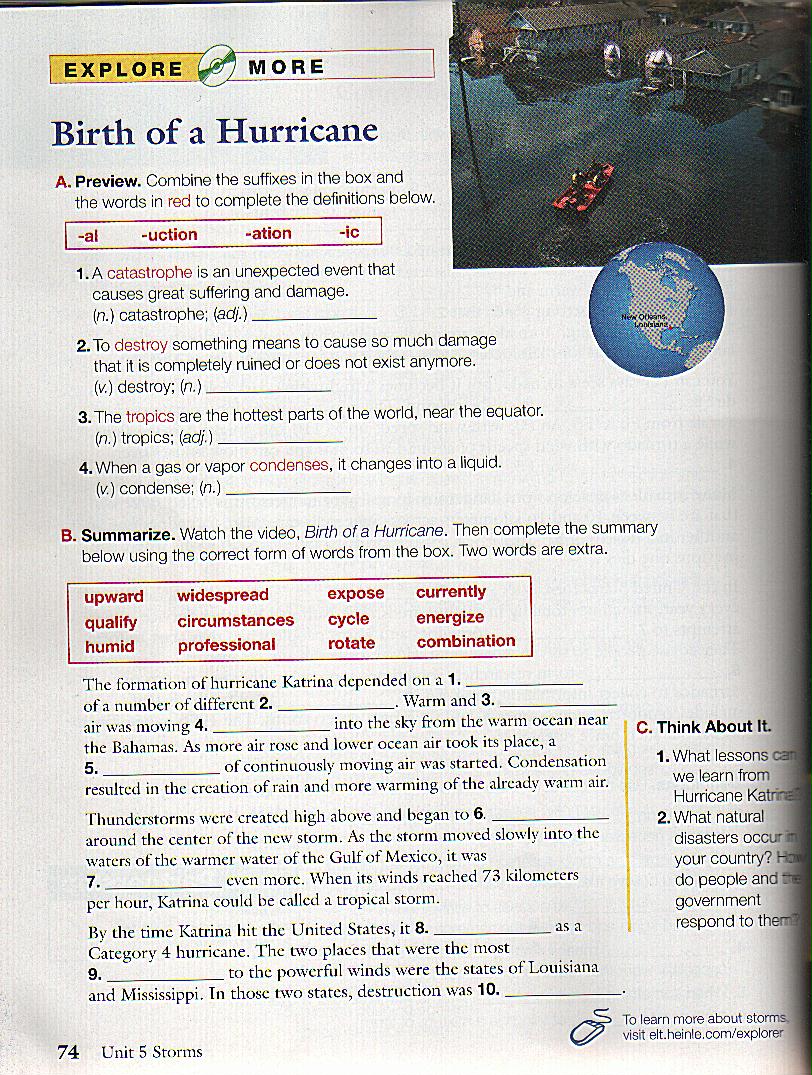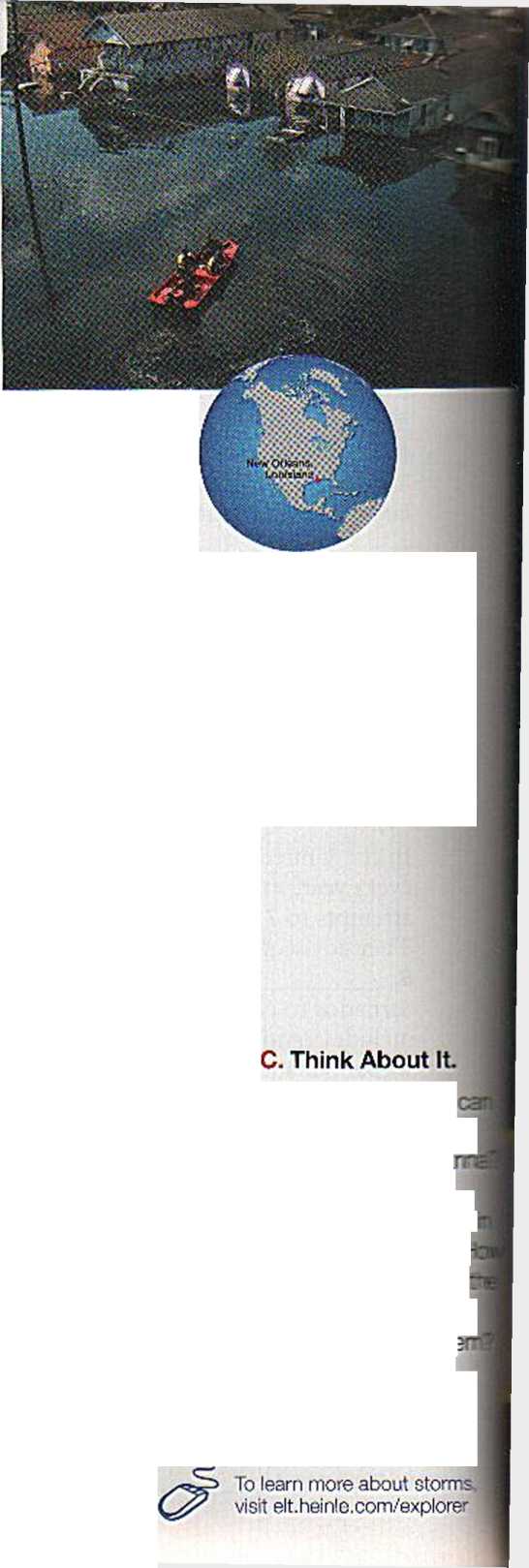stormB5

[EX PLORE

MORĘ
Birth of a Hurricane
A. Preview. Combine the suffixes in the box and the words in red to complete the definitions below.
-al
-uction
-ation
-ic
as a

1. A catastrophe is an unexpected event that causes great suffering and damage.
(rt.) catastrophe; (ad/.)_
2. To destroy something means to cause so much damage that it is completely ruined or does not exist anymore.
(y.) destroy; (n.)_
3. The tropics are the hottest parts of the world, near the equator.
(n.) tropics; (adj.)____
4. When a gas or vapor condenses, it changes into a liquid.
(y) condense; (n.)_
B. Summarize. Watch the video, Birth ofa Hurricane. Then complete the summary
below using the correct form of words from the box. Two words are extra.
|
upward |
widespread |
expose |
currently |
|
qualify |
circumstances |
cycle |
energize |
|
humid |
Professional |
rotate |
combination |
The formation of hurricane Katrina depended on a 1.
of a number of different 2.___. Warm and 3.
air was moving 4._
into the skv from the warm ocean near
the Bahamas. As morę air rosę and lowcr ocean air took its place, a
5.___of conrinuoiisly moving air was started. Condensation
resultcd in the crealion of raili and morę warming of the alrcady warm air.
Tliundcrastorms were creatcd high above and began to 6._
around the center of the new storm. As the storni moved slowly into the waters of the war mer water of the Gulf of Mexico, it was
7._even morę. When its winds rcached 73 kilomcters
per hour, Katrina could be caJled a tropical storm.
By the time Katrina hit the United States, it 8._
Category 4 hurricane. The two places that were the most
9.__to the powcrful winds were the States of Louisiana
and Mississippi. In those two states, destruction was 10.___
74 Unit 5 Storms
1. What lessons we learn from Hurricane Kat
2. What natural disasters occtr your country? b do peopłe and government respond to the
Wyszukiwarka
Podobne podstrony:
- Graphic Design Poster project (10%) • Online Blog 15% of finał grade (combined) Finał Grade in Des
guy0001 Write the correct form of the verb in brackets to complete the sentences. Use one of these&n
54137 IMGP5909 FAP Molecular genetic testing of APC detects discasc-causing mutations in up to 95% o
3 (2918) Q Write the comparative or superlative form of each of the adjecthres in brackets to comple
stormB6 L Birth of a Hurricanefe-rator: z 6:10 a.m. on Monday, August 29th, a Catcgory Hinrricane na
FigB JAMES BROWN IB.EBmi PETERS AIR AP o. MAW TRENT AT7TDON Y0UN&D.y ■DmB In all of the&e co
koliber z motylem i (3) V V • •••Symbol List The pair of colors whose names are listed below in r
img24 EX.2. Structural transformation of nano-GaN under high pressure ----nanccr^ta ire GaN ODwder,
skanowanie0105 (2) necessary grammar and syntax. This approach combines the purpose of a written pas
variable that combines the effects of frequency and temperaturę. In view of the fact that all
img27 EX.2. Structural transformation of nano-GaN under high pressure Influenc© of high pressure to
* 1 9 * i 9 *- h # »Only one tape deck combines the incredible realism of dbx with the precisesound
Comparison of Liąuid Propellant Rocket Engine Feed Systems - 1 - 12 Finally, combining the above exp
Open interfaces of GSMMobile Station (MS) The MS (Mobile Station) is a combination of terminal equip
cw0007 Change *mumvi □ Make prefix and verb combinations to complete the sentences. Use the correct
więcej podobnych podstron